Quidditch boasts a surprisingly in-depth upgrade system, dramatically boosting your team’s effectiveness. If you want to stay ahead of the competition, here are the Best Skills for Seeker, Chaser, Keeper, and Beater and how the system works in Harry Potter: Quidditch Champions.
Table of contents
How to earn Skill Points in Harry Potter: Quidditch Champions
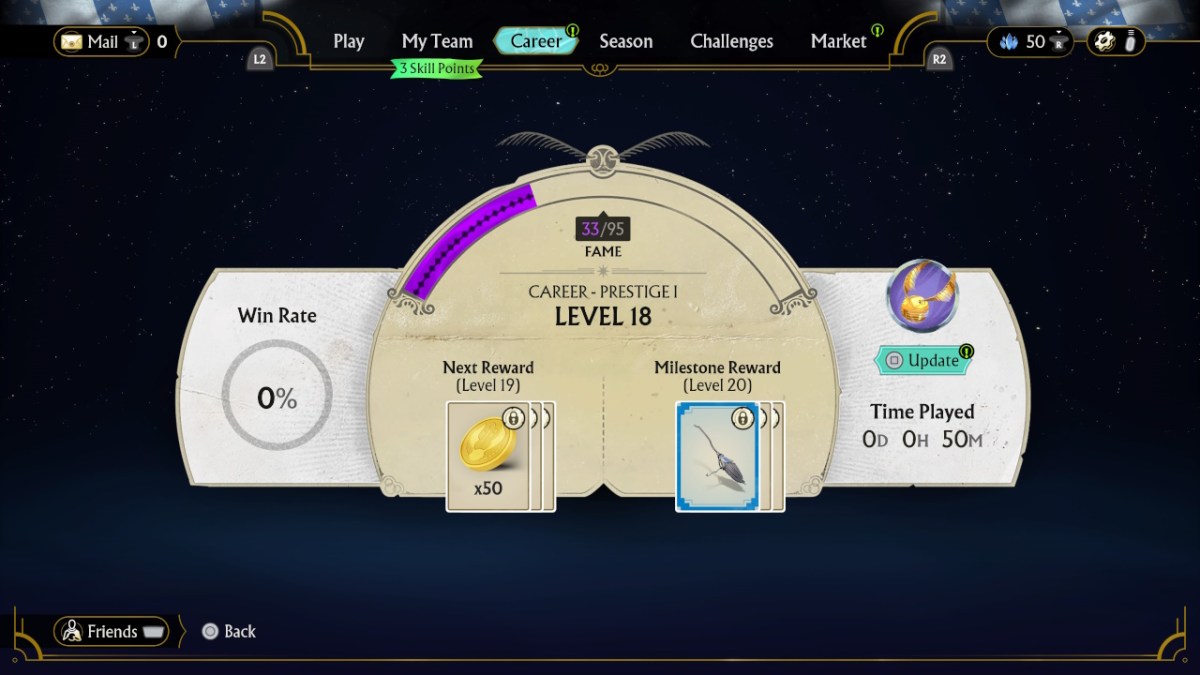
You can earn points to spend on Skills through regular gameplay. Skill Points are rewarded every time you level up, and you can check your progress under the Career Tab on the main menu (pictured above).
Sadly, you can’t see the rewards for future levels, but you can still track some progress here. You usually level up after a match or two, and it doesn’t matter if you’re playing online or against bots.
If Quidditch Champions has reignited your love of Harry Potter, you can don a Wizard hat and own a broom in Hogwarts Legacy. Oddly enough, you can’t play Quidditch in that title, so you’ll have to stick with Champions for that.
How Skill Points Work in Quidditch Champions
Every class has access to three Skill Trees, with six nodes available. You can assign up to 10 Skill Points per character, so you can only fully fill a single tree.
The best part about Skills in Quidditch Champions is you’re free to mix and match. Skill Points aren’t permanent, and you can experiment without penalties.
You can have more than 10 Skill Points in total and distribute them between your favorite roles.
We’re unsure what the upper limit is for total Skill Points, but it doesn’t really matter. Once you’ve got 20, that’s enough to max out two classes, which is all you need for multiplayer.
Best Skill Allocation for each position in Harry Potter: Quidditch Champions
Each position demands a different approach, and a smart skill spread can make a huge difference on the pitch. With this in mind, here are some recommendations for every class, starting with everyone’s favorite, the Beater.
Best Skills for the Beater in Harry Potter: Quidditch Champions
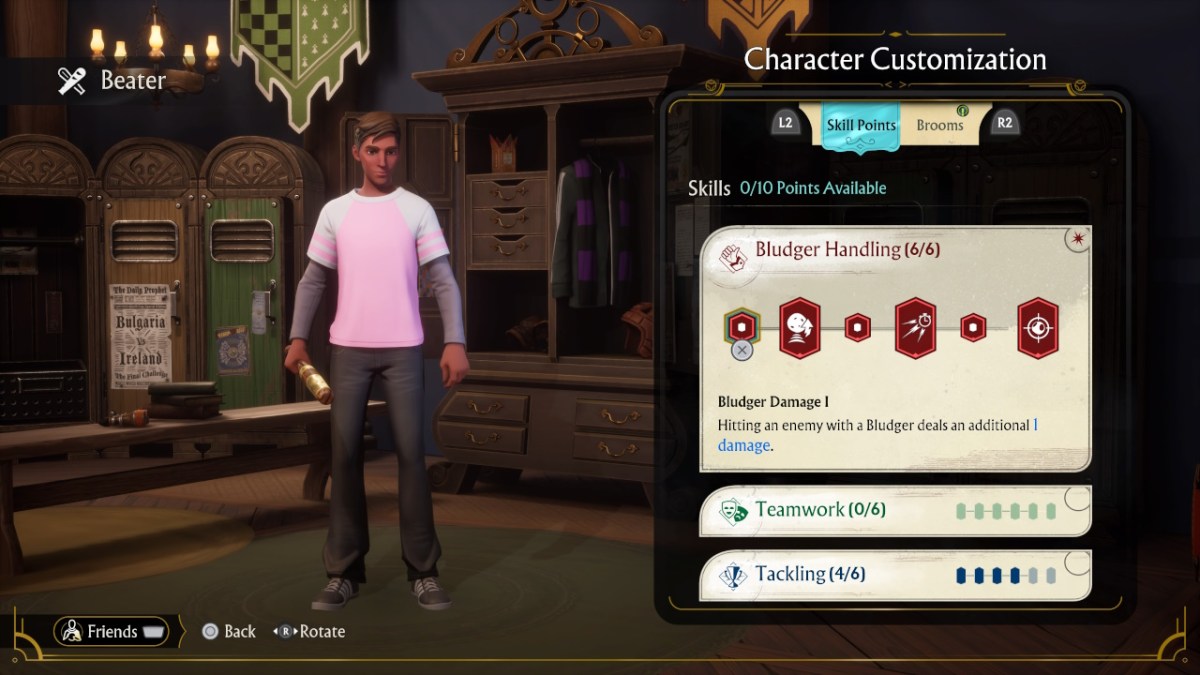
The Beater is a tremendously fun role, and a strong player is incredibly oppressive to battle against. We heavily invest in our Beater-specific skills while leaving the Teamwork Tree unused.
| Skill Tree | Point Allocation |
|---|---|
| Bludger Handling | Bludger Damage I Summon Boost Bludger Damage II Rapid Fire Bludger Damage III Quaffle Targeting |
| Tackling | Tackle Damage I Tackle Deflect Tackle Damage 2 Tackle Quaffle Pass |
We assume an aggressive playstyle with these skills, which is perfect for the Beater. The Bludger Damage boost makes our Bludger deal more damage so we can reliably eliminate players in two hits.
Summon Boost gives us speed when we need it the most, and Rapid Fire reduces the cooldown of our Bludger. Quaffle Targeting has niche uses but could come in handy for an interception.
We invest the rest of our points into Tackling. The bonus damage is excellent, and Tackle Quaffle Pass is a cheeky skill that can help you regain ball control.
The Teamwork Tree does have some fun skills, like Drafting Unlocked, but you must have cooperative teammates to get the most out of them. Your mileage may vary in a premade group, but I find I get no value from the tree in public matches.
Best Skills for the Seeker in Harry Potter: Quidditch Champions
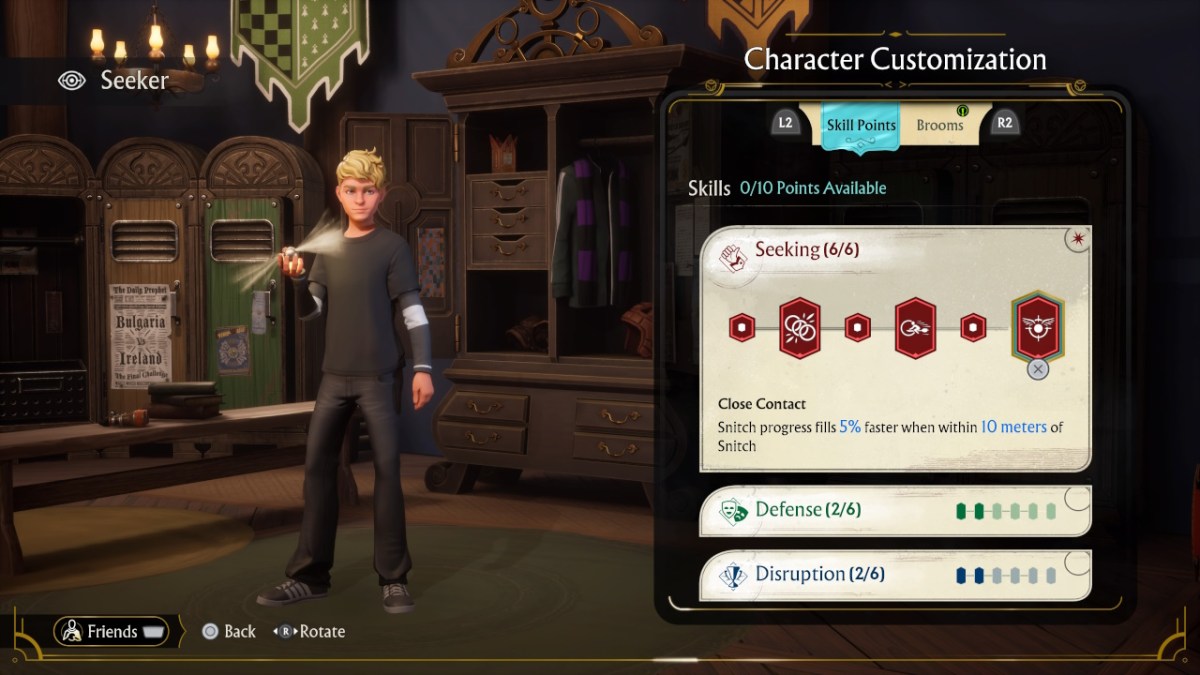
Speed is the name of the game as a Seeker, and several skills boost Snitch Meter gain. You will run rings around any player who doesn’t have a well-built Seeker with this skill allocation, so here’s what you need:
| Skill Tree | Point Allocation |
|---|---|
| Seeking | Snitch Chase I Snitch Ring Buff Snitch Chase II Snitch Ring Energy Snitch Chase III Close Contact |
| Defense | Snitch Meter Distance I Dodge Speed Boost |
| Disruption | Bump Damage I Bump Homing |
We want the entire Seeking tree as every skill gives Speed, Boost Energy, or Snitch progress. Close Contact boosts Snitch Progress when you’re within 10 meters, and you’ll outpace any Seeker who isn’t using this ability.
We gain even more Snitch Progress with Snitch Meter Distance I from the Defense Tree and more speed if a Bludger targets us. Finally, our Disruption Skills make us slightly more effective in a Bump battle against enemy Seekers.
I rarely get into Bump fights against Seekers, but that may change as players become more experienced.
Best Skills for the Keeper in Harry Potter: Quidditch Champions
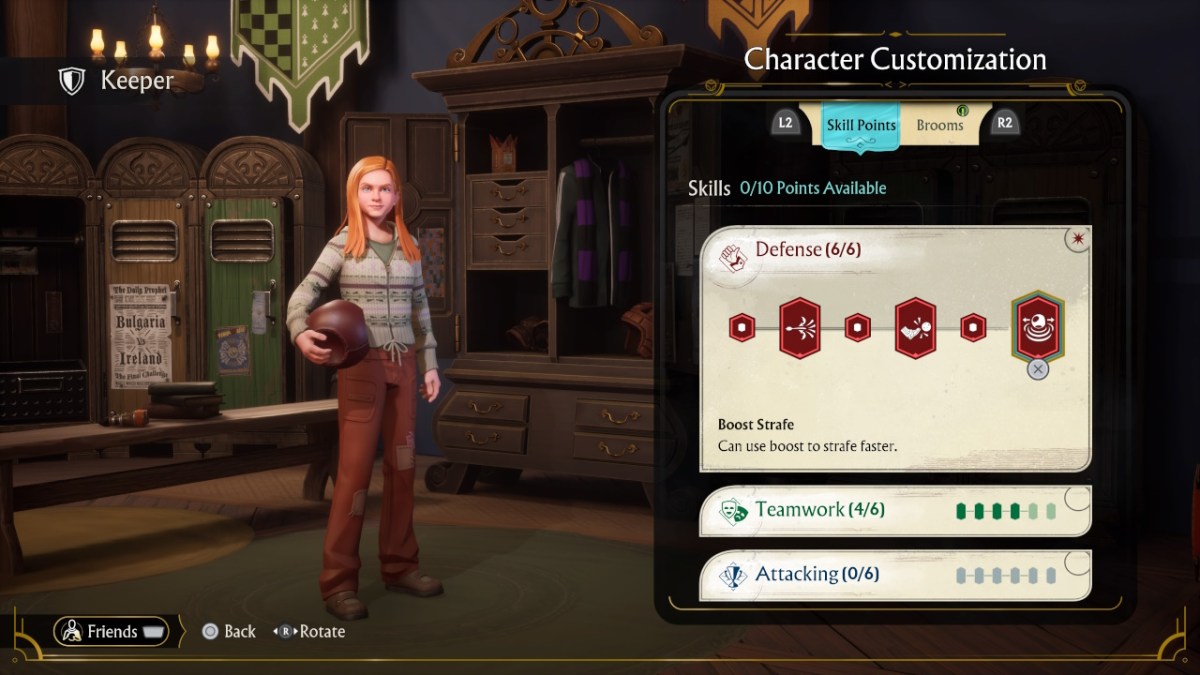
Keepers have a strange assortment of Skills to pick from. The defensive and team-based perks are handy, but the Attacking tree is based on kicks and damage dealing, which rarely come into play. To that end, we’re investing heavily in two skill trees:
| Skill Tree | Point Allocation |
|---|---|
| Defense | Catch and Steal Radius I Reverse Maneuver Speed Catch and Steal Radius II Bludger Parry Catch and Steal Radius III Boost Strafe |
| Teamwork | Playcaller Cooldown I Kick Reciever Speed Playcaller Cooldown II Longer Plays |
Catch and Steal Radius is an invaluable skill for the Keeper as it allows you to save goals from slightly further away. 15% may not sound like a massive increase, but it’s worth it if that one saved goal wins the match.
Keepers always have Boost to spare, and Boost Strafe is an effective skill to spend it on.
Decent Keepers use their Playcaller whenever it’s off cooldown, as it gives speed boosts to the team. My team often ignores my Speed Rings, but I’ve invested in the tree, hoping that changes down the line.
Playcaller Cooldown means the skill is live more often, and Longer Plays increases the duration.
Best Skills for the Chaser in Harry Potter: Quidditch Champions
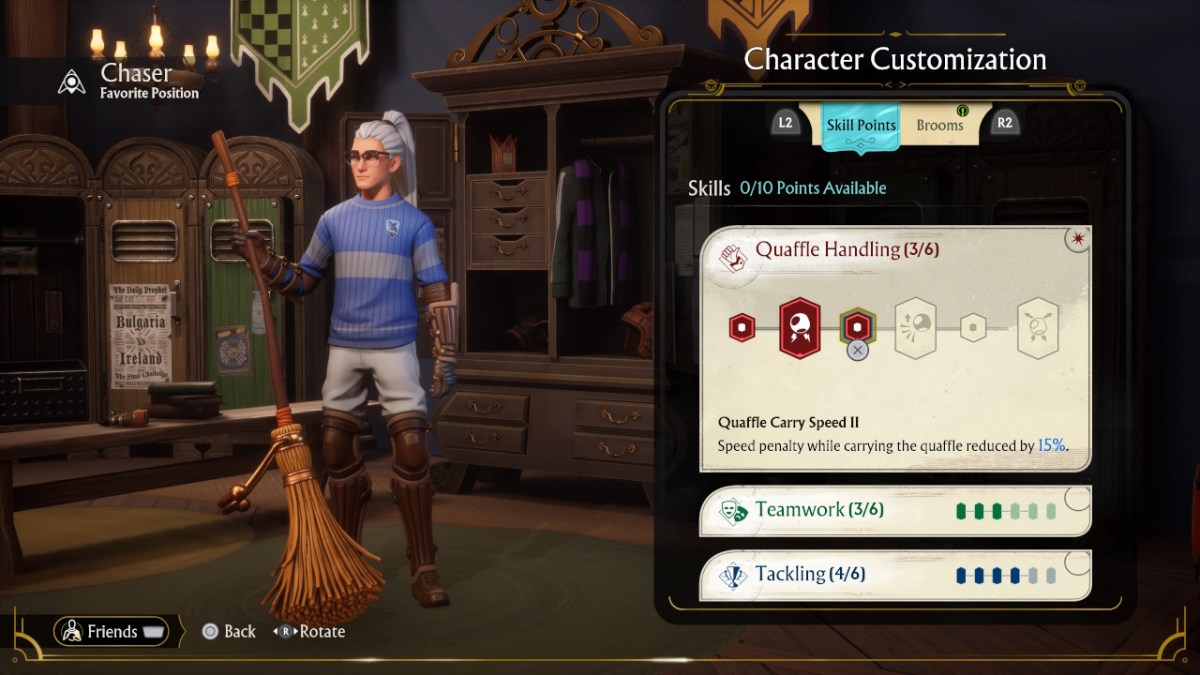
The Chaser role is the bread and butter of any Quidditch team, as they are the only players capable of scoring goals. Chasers also have the most diverse skill tree, encompassing several different playstyles.
I find most players don’t know how to deal with aggressive opposition, so we’re leaning more into the Tackling tree, but we invest points in every tree to upgrade our base stats.
| Skill Tree | Point Allocation |
|---|---|
| Quaffle Handling | Quaffle Carry Speed I Charge Throw Quaffle Carry Speed II |
| Teamwork | Pass Distance I Drafting Unlocked Pass Distance II |
| Tackling | Tackle Damage I Tackle Radius Tackle Damage II Boost Leech |
A lot is happening here, but increased Quaffle Carry Speed is handy as the ball carrier.
Passing is a great way to shake off opponents, and the increased range with Pass Distance is a nice quality-of-life boost. Drafting Unlocked is useless outside a coordinated team, but you can’t have Pass Distance II without it.
We’re investing in Tackle Damage so we can soften our opponents up for a Bludger attack. Boost Leech is fun when you can land it as it drains your opponent’s speed, removing them from the brawl.
If you’re not a fan of Tackling, you can spend those points in Quaffle Handling, which puts you in more of a Striker role.
Skills are important, but if you want to be the prettiest player on the pitch, make sure you grab the Hagrid Papercraft Mask and put it on every team member.


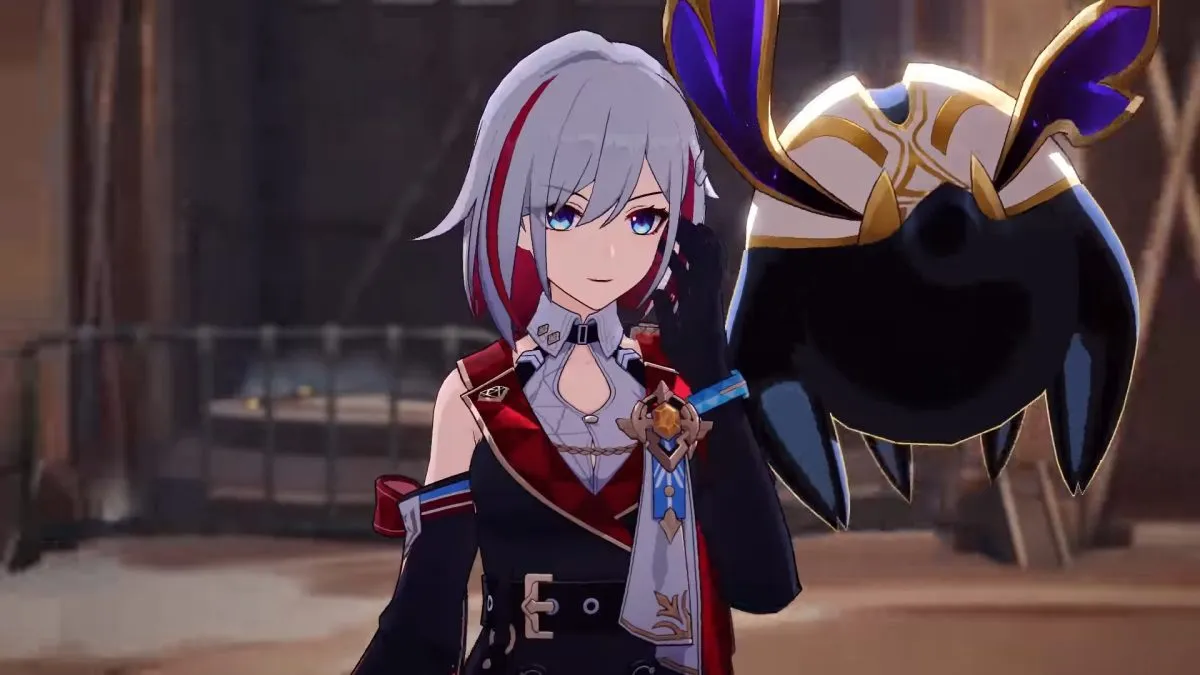

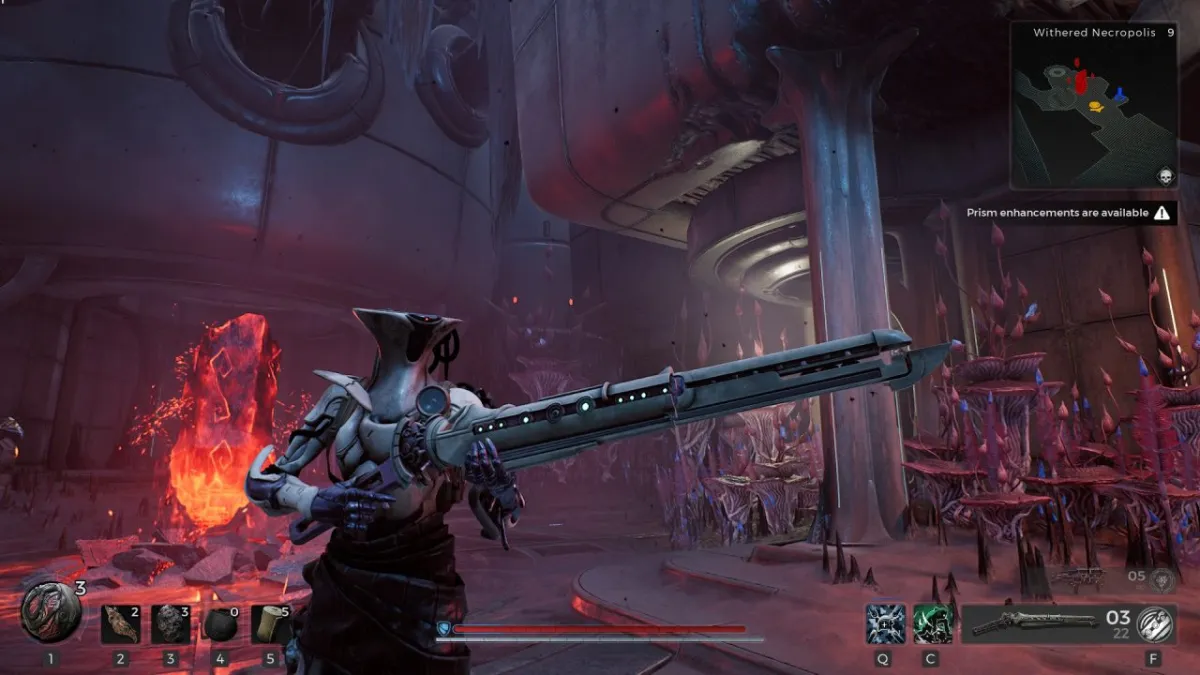


Published: Sep 4, 2024 11:10 am